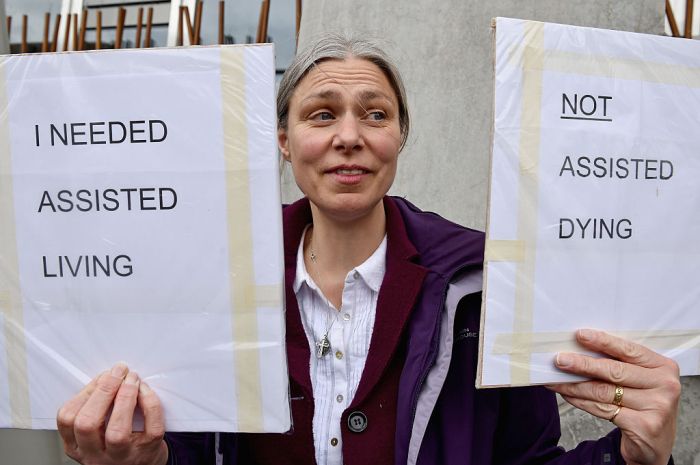80% of Dutch support assisted suicide for people without terminal illnesses: poll

The vast majority of people living in the Netherlands support expanding assisted suicide for older citizens who are not facing a serious or life-threatening illness.
The English-language Dutch news outlet NL Times reported last week that a recent poll conducted by Kieskompas of nearly 200,000 people found that 80% of the Dutch supported enabling elderly people who feel they've reached the end of their lives to obtain assisted suicide. In other words, a supermajority of respondents favor allowing assisted suicide regardless of whether the person requesting it is terminally ill.
While a supermajority said they support expanding assisted suicide, 10% of those surveyed oppose expanding eligibility for legal assisted suicide to include those who merely think their useful lives have come to an end, while another 10% did not express an opinion.
Kieskompas found no noticeable disparities in support for the proposed expansion of assisted suicide among age, education status or gender.
The poll was conducted in response to the European nation’s Legislature considering a bill that would allow people over the age of 75 to have medical help to end their lives if they felt they had reached the end of their useful lives.
If enacted, the bill would still require individuals over age 75 to undergo a six-month process before they could medically end their lives, which would include meeting with an “end-of-life counselor” on at least three separate occasions.
Wesley J. Smith, author and senior fellow at the Discovery Institute’s Center on Human Exceptionalism, denounced the results of the poll in an op-ed for National Review, viewing it as an example of a slippery slope.
“Once a society embraces killing as an answer to suffering, the ‘suffering’ that qualifies for termination never stops expanding,” wrote Smith. “Since lethal-injection euthanasia became decriminalized — and then, formally legalized — the killable caste has expanded from the terminally ill, to the chronically ill, to people with disabilities, to babies born with serious medical conditions, to the mentally ill, etc., etc., etc.”
Smith went on to ask, “why should eligibility be age-directed” and “why not open the death option to younger people” because “doesn’t every suicidal person believe their life is completed?”
“Euthanasia corrupts public morality and the human conscience. The same progression into the culture of death will happen here if we don’t resist the siren song of ‘death with dignity,’” he added.
In 2001, the Netherlands became the first country in the world to legalize euthanasia, following nearly three decades of debate and despite protests from Christian groups.
The 2001 law had several restrictions, such as the procedure only being allowed for patients suffering from constant and incurable pain as well as a mandated second opinion. Additionally, euthanasia was only permitted for patients determined to have a sound mind.
According to a report by DutchNews published in April, more than 8,700 people died by euthanasia in the Netherlands last year, representing a 14% increase from the year before.
Although most of the euthanasia requests came from cancer patients, 288 of those euthanized were suffering from dementia, a 34% increase from 2021, according to DutchNews.




























